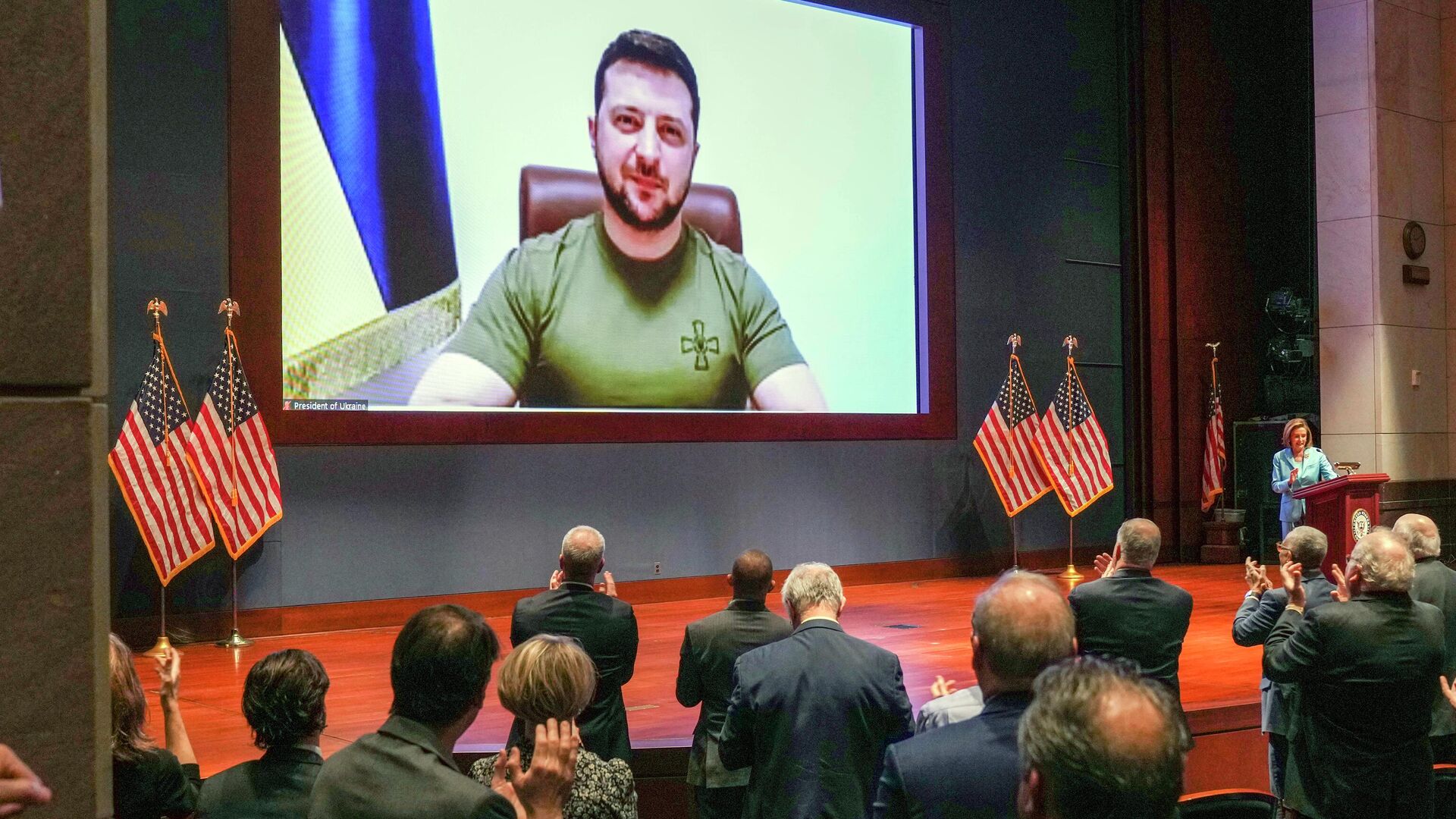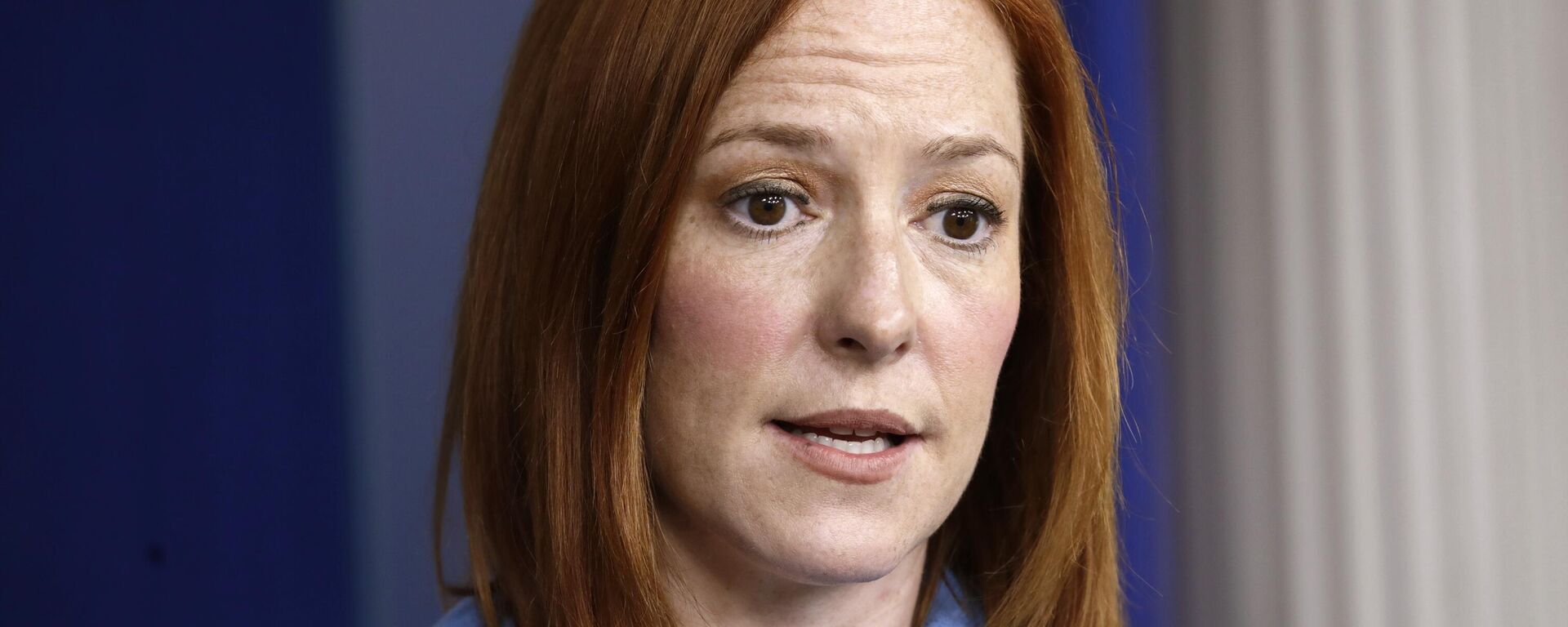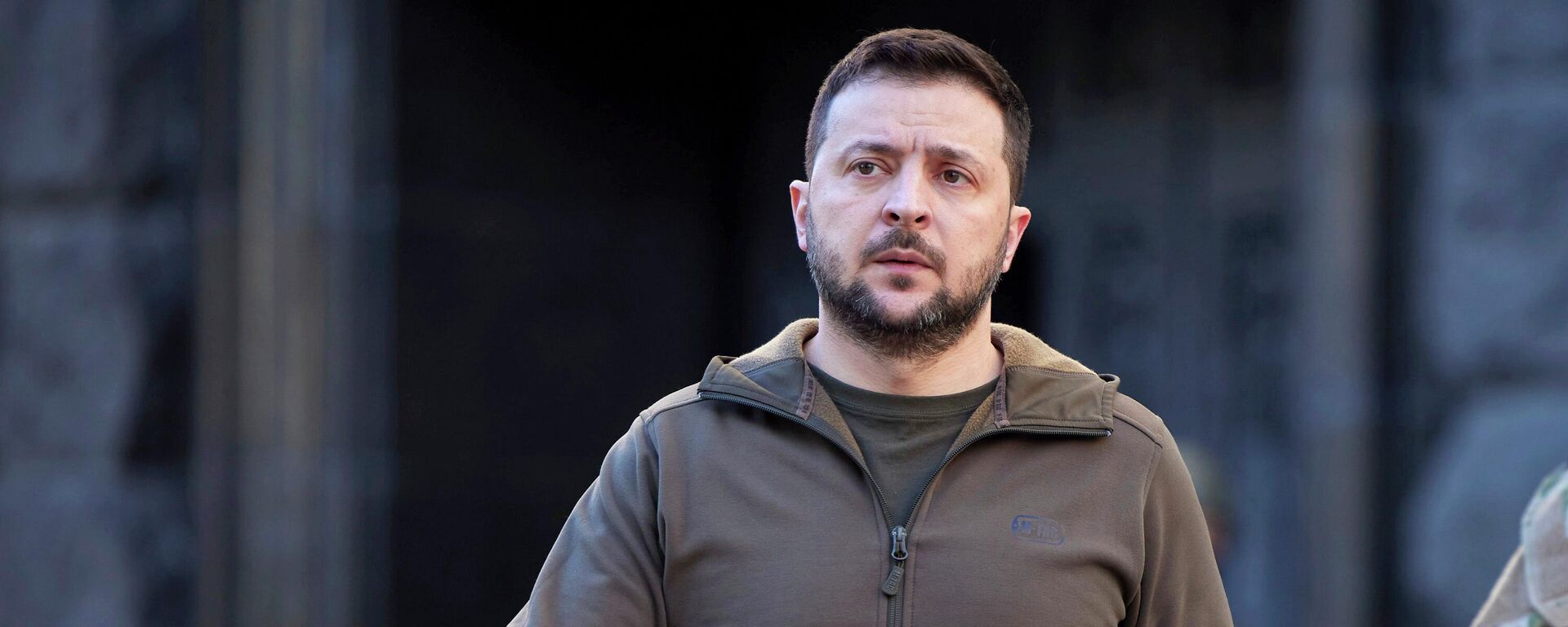Zelensky’s DC Christmas Visit Meant to Evoke Churchill, Comes at End of Scrutiny-Free Aid: Experts
16:38 GMT 21.12.2022 (Updated: 17:06 GMT 20.04.2023)

© AP Photo / Sarahbeth Maney
Subscribe
As Ukrainian President Volodymyr Zelensky visits Washington, DC, Congress is considering a massive new $45 billion aid package for Kiev, and the White House has revealed it is preparing to send Patriot air defense systems as well. But what’s the real message behind the comedian-turned-leader’s trans-Atlantic trip?
Sputnik spoke with two political scientists about Zelensky’s visit, and what is likely to come – or not come – of it.
Professor David Woodard, Clemson University political scientist and former political consultant for Republican congressmen, told Sputnik on Wednesday that Zelensky’s trip was part of a time-honored tradition for recipients of US military aid.
“Ever since Winston Churchill came to the US for Christmas after the attack on December 7, 1941 at Pearl Harbor, foreign leaders have felt this time of the year was a good time. Like Churchill, Zelensky is coming to make future plans and to say 'Thank You' for past aid. The timing is good, the president has just survived a midterm election referendum and Congress is in the last days of its session,” he explained.
Dr. Harvey Schantz, a professor of political science at State University of New York at Plattsburgh, agreed, adding that Zelensky’s visit was also “intended to advertise to the world the strong ties between Ukraine and the US, and the Ukrainian point of view, and to boost the morale of the Ukrainian people, as well as demonstrate Zelensky’s leadership.”
When it came to the new aid package, Schantz predicted few problems with getting it approved, although he foresaw more difficulties after the newly-elected Republican-Majority House of Representatives is sworn in in January.
“The proposed aid for Ukraine in the current budget, known as a continuing resolution, will most certainly pass,” he noted. “The federal spending bill that is currently being considered is for the balance of fiscal year 2023, which stretches from October 1, 2022 through September 30, 2023, and it encompasses about $1.7 trillion, the approximate $45 billion in aid for Ukraine within the budget is only a small percentage of the budget and will therefore pass along with the rest of the budget.”
“Continued aid for Ukraine in the fiscal year 2024 budget, which is due September 30, 2023, is a long way off, but one could foresee stress within the House Republican Party over how to handle this spending issue. Every year there are issues which delay the prompt passage of the 12 required annual appropriations bills,” Schantz also said.
Woodard rejected any notion that Zelensky would be seen by US politicians as a “beggar asking for a handout,” as some commentators have mused, because the Ukrainian president is seen as a “knight” doing what the Americans planned for but never got to do: fight Russia.
He noted, however, that the Americans were likely to continue to be hesitant in sharing technology with Ukraine, out of fear of giving adversaries like Russia or China too much insight into US defensive capabilities and thinking.
“American defense depends on technology, and having an advantage in that realm when it comes to weapons. The problem, and it is very big, is that China now has equal-to-superior technology when it comes to the battlefield. In sharing your weapons systems with your friends you are in effect giving your opponent an insight into what you are thinking about future defense,” Woodard explained.
“Think back to the 'Enigma' machines used by Nazi Germany in WWII, and you will see that wartime intelligence can determine the outcome of the conflict. The US will continue to dribble-out weapons to Ukraine, but they will be cautious about what they share.”
Woodard also expected the Republicans to be more cautious about doling out military hardware or funding to the Ukrainians without some kind of guarantees, such as a plan for ending the war. The memories of stalemates in Korea and Vietnam likely still haunt their decision-making about whether or not to keep funneling support to Kiev, he said.
“The Republican capture of the House of Representatives is significant. Congress, meaning the House, controls the 'purse strings' of the government. In a recession-likely environment, they will not be in a generous mood. The Republicans will now be asking Zelensky 'When will it end?’ They are unlikely to be the spendthrifts that Democrats were, they'll ask for 'benchmarks' or 'guidelines for an exit,' topics that have been avoided until this point,” he predicted.
"’Isolation’ is a central premise of conservative thought from the beginning,” Woodard further noted.
“It is traceable to the Revolutionary War, when American colonists didn't want to be involved in 'European Wars.' Before WWII, the ‘America First’ movement against involvement in the war in Europe had deep and abiding support ,especially in the American Midwest. Once there were 450 chapters of the 'America First' sentiment nationwide, then Pearl Harbor changed the whole discussion. Americans don't want to see their children buried on foreign battlefields, so this issue will always be a significant one with Republicans.”



